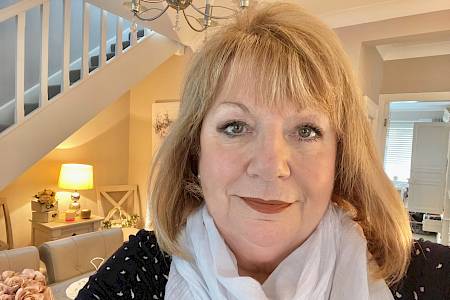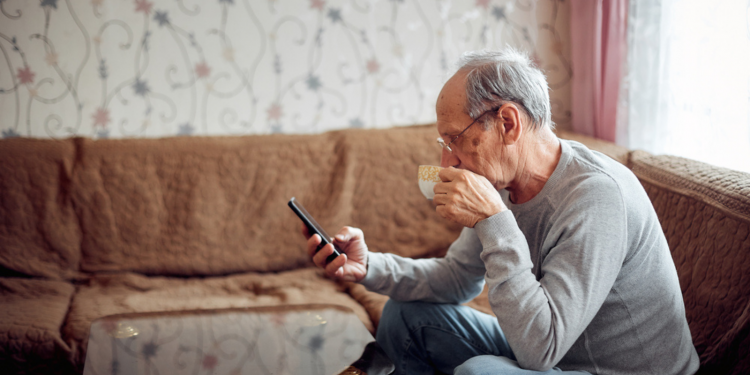During the pandemic we were inundated with suggestions as to how to help those we support get online but we knew that simply putting our services online was not the answer. Our research was driven by a need to find out more about the relationship that older people have with technology so that we can best meet their needs.
We found that half of older people who live alone still have no access to the internet. But this is not the full picture. Whilst others confirmed that they choose not to be online, many see the internet as a lifeline; a way to pursue interests, carry out day to day tasks and keep in touch with family. You can read our full report here: Being online in your 80s: waste of time or lifeline?
The composite profiles below are based on the people we spoke to and illustrate different perspectives and views while ensuring nothing is personally identifiable. All of the quotes we've included are from our research.
Edward is among those who find the internet invaluable, particularly to stay in touch with his children and grandchildren. He uses an iPad that his son bought him two years ago and finds that reading the news and researching topics of interest is a good way to fill time and a nice change from watching TV. “I'm on it [my iPad] every day. I sit down and if I'm bored, I get it out. That's it. It's by the side of my chair. I think everybody should have it. It's company.”
For older people like Pamela, being online is a way to keep up to date with personal interests and with what’s going on in the world, as well as housekeeping and admin.
“I do my banking and shopping online, all sorts, not just food shopping, but all sorts of things,” Pamela said. “There's so much that I do online that I just couldn't imagine how I'd manage without it. I do worry about being contacted by unknown people and so on. I mean, you have to watch out for weird emails and things.”
Yet our research found that among people in their 70s, 80s and beyond half are not online. Fear of being scammed was the biggest barrier to going online, but other significant reasons respondents gave were health problems, getting the tech set up and the cost.
Susan said: “I tried to get online three years go with the help of my granddaughter. But health issues such as deteriorating eyesight and difficulty using my hands meant I never got into it regularly.” She added she had some regrets about not getting online particularly during the lockdowns when she missed seeing her grandchildren and great grandchildren and became very lonely. “I’d still like to try and get online, I’ve a friend who has a tablet she uses from a comfy chair, but I’m worried about the cost of paying for the service each month and don’t want to burden family for help setting it up."
We also found that some older people simply choose to not be online.
Margaret was briefly online many years ago when her husband was still alive and hasn’t felt the need to back to it since her husband passed away. She told us she doesn’t see the point of learning a complicated new skill at this stage in life. She does feel quite lonely with limited family contact, especially since isolating in lockdown, but she doesn’t feel that getting online will help. She also thinks it's unfair that everyday tasks are often hard without an email address or the internet and feels like a pariah because she doesn’t want to get online. “People that are online all the time probably think we're mad, because we say no. I suppose it's because it's something that I’ve never done, and I’ve never really been interested in.”
Meryl Davis, Re-engage CEO, said, “We are committed to supporting choice, providing support and investigating the massive issue of scams and fraud. As we can see, the internet has brought a lot of joy to some of you and for others it something you are happy to be without. We will continue to offer services right across the board to ensure we are able to reach all those who need us.”
-
View
More news

Meet rainbow call companion Julian
Julian, 47, a hospitality business consultant who lives in Southsea is one of our first rainbow call companion volunteers. Julian is happily married and has friends and family around him. He told us that, by becoming a rainbow call companion, he hopes to give something back to a generation that may have felt less fortunate.
By Re-engage

Meet volunteer Avril
When Avril, in Stockton-on-Tees, was thinking about what she wanted to do when she retired from her job at Durham University, volunteering was top of her list. Six years now into being a volunteer for Re-engage, she's as passionate and active as ever. A real joy to speak with her and we know you'll find our interview with her inspiring and warming.
By Re-engage

